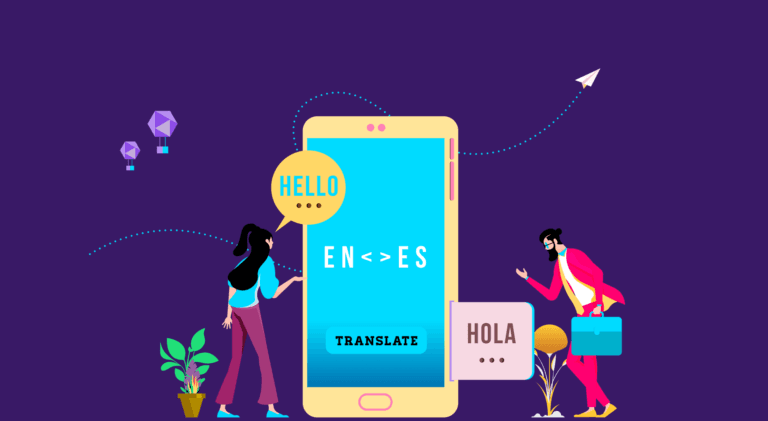
Table of Contents
- 5 Translation Tips for Long-Form Content
- Key Takeaway
- Conclusion
- FAQs
With our world connected more than it ever has been, the need for translation services is in high and never-ending demand. Many corporations nowadays are including translation best practices in their marketing strategies, to effectively communicate with clients and partners abroad.

Content translation is a crucial aspect of content strategy today. If a company is producing content only in English, they are majorly missing out on potential client conversions and market establishment in the continent of Asia, where a vast population does speak English, but it is still not their preferred tongue. Let’s check out some useful translation tips for beginners.

5 Translation Tips for Long-Form Content
When it comes to long-form content, the quality and standard of writing is of crucial importance.

Long-form documents typically tend to be important copies such as white papers, reviews, business reports, articles, research papers, etc. These demand clear, precise, and well-structured sentences for maximum impact. Here are a few translation best practices and translation tips to abide by when translating long-form content.
Make sure the project management is in place
An important thing to keep in mind while accepting or working on long-form content translation is the setup and other project management processes. These should be in place before you begin work. Clarify the timings, keeping in mind that a translation element in a long-form copy will result in major changes in the design, layout, etc. All of this will require more time for you to not just translate the content but also to review and edit/proofread it. Then there is the time needed for checking and approval as well. One of the translation best practices is to use a central tracker or a project management tool.

Choose linguists carefully
Another tip on the list of translation best practices is to make sure that the linguists or translators you work with are an individual or a brand If they are people, do they have good reviews or you have prior experience working with them. Choose translators whose native tongue is the target language for your content translation. Only they can bring the right nuances and the contextual meanings accurately to the translated copy. Also, make sure if the linguist/translator has some experience in writing/translating the specific type of content that you want to get translated.
Make sure nothing is lost in translation
One of the most crucial translation tips while translating long-form content, is to make sure that the tone, style, vocabulary, and certain vital elements of the source language are not lost when the text is translated. An often occurring mistake is the interchange of formal and informal words used for greeting or addressing someone when content is translated from one language to the other. Research whether the context of the source material is formal or informal in tone before translating. Avoid cultural insensitivities at all costs.
Ensure consistency in the meanings of words
Vocabulary is the foundation stone of all languages. Each language has its separate set of unique words. Make sure that you create a glossary of the source language as well as the goal language before you start translating. A multilingual glossary of the terms widely used in the project or a particular piece of content can help you ensure consistency in the translated copy.
Keep in mind the essentials of translation
Some effective content structural tips to keep in mind while translating long-form content includes: keeping the translated sentence brief, making sure that the language structure of the goal language is kept in mind while translating (subject-verb-object), using precise terms to explain concepts, checking relative pronouns, using active voice always, avoiding phrasal verbs, and most importantly making sure that overall meaning of the text (in goal language) is consistent with the message of the text in the source language.

Key Takeaway
- When accepting or working on a long-form content translation, make sure the setup and other project management processes are in place.
- One of the translation best practices is to use a central tracker or a project management tool.
- The linguist/translator should have experience translating the specific type of content that you want.
- The tone, style, vocabulary, and certain vital elements of the source language should not be lost when the text is translated.
- Research whether the context of the source material is formal or informal in tone before translating and avoid cultural insensitivities.
- A multilingual glossary of the terms can help you ensure consistency in the translated copy.
Conclusion
While working with content translation, especially for long-form content, one of the most crucial translation best practices to keep in mind is to conduct clarifications over calls instead of emails and textual conversations. Misunderstanding can likely occur due to differences in language. Before finalizing and uploading the translated content, run it by multiple reviewers.
FAQs
Some of the examples of long-form content are case studies, white papers, definitive guides, yearly reviews, roundup reports, e-books, datasheets, brochures, and review reports.
If you want to read some excellent long-from articles, some of the best websites to check out are:
– Longreads
– The Atlantic
– Guernica Magazine
– The Cut
– Pacific Standard
– ProPublica
To translate a long-form copy, read the brief carefully and understand what the project is about. Focus on understanding the topic first and decided on a structure on how you’ll be translating. Make sure to edit/proofread it once you’re done translating.
Mandarin is in high demand all over the world. Followed by languages like Spanish and French.
Of all the foreign languages in the translation industry, Chinese (Mandarin) is the highest-paid language.
Latest Blogs
Learn how to rank on AI search engines like ChatGPT, Perplexity, and Gemini by optimizing your content for authority, structure, and relevance. Stay ahead in AI-driven search with this strategic guide.
Explore the best healthcare SEO services for your medical practice. Improve online visibility and effectively reach more patients in need of your services.
Discover top social media agencies specializing in banking solutions, enhancing financial services and driving engagement.
Get your hands on the latest news!
Similar Posts

Translation
5 mins read
All You Need to Know About Language Translation and Terminology Management

Translation
5 mins read
6 Reasons to Translate Content into German

Translation
5 mins read